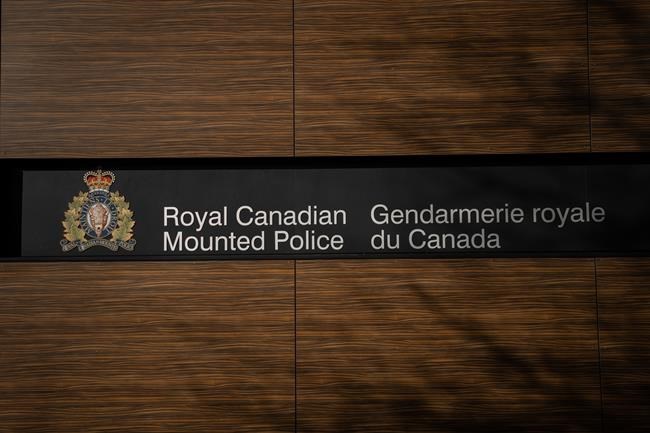
The B.C. RCMP Divisional Headquarters is seen, in Surrey, B.C., on Thursday, Jan. 11, 2024. The first police officer to enter a room where a woman was being held hostage in 2019 has told a B.C. coroner's inquest that he saw her lying on a bed on top of her captor, who was holding a knife to her throat with a gun in his other hand. THE CANADIAN PRESS/Ethan Cairns
Republished April 18, 2024 - 6:17 PM
Original Publication Date April 18, 2024 - 4:36 PM
BURNABY, B.C. - The first police officer to enter a room where a woman was being held hostage told a B.C. coroner's inquest that he saw her lying on a bed on top of her captor, who was holding a knife to her throat with a gun in his other hand.
Cpl. Chris Dibblee told the inquest jury Thursday that he almost immediately felt he would need to shoot Randy Crosson to save hostage Nona McEwan but initially didn't think he could do so without hitting her too.
"This is what I was thinking … can I get to him before he cuts or stabs her with this knife, before he shoots her or before he shoots myself or one of my teammates as well," he said.
"Though that's secondary in our attempt compared to rescuing Nona."
The jury has been hearing testimony this week about the March 2019 hostage situation in Surrey, B.C., that ended with both Crosson and McEwan being killed by police bullets.
Dibblee testified that when McEwan moved and exposed Crosson's torso, he shot at the man 14 times and other officers began firing as well.
The jury heard Dibblee had a bulletproof shield and led the team of six emergency response officers into the room after police decided to blow the door off with explosives in response to Crosson saying he would kill McEwan in five minutes.
He said that debris, possibly from attempts to barricade the door, tripped him and he let go of his shield on the way in.
He said the room was relatively dark and had smoke and dust from the explosion.
"(Crosson) was yelling something to the effect of 'I'm going to kill her,' I couldn't clearly hear exactly what he said," Dibblee said.
Dibblee testified that he does not believe the other officers who fired their weapons did so because of "sympathetic firing," when someone starts shooting because someone else is too.
He said that would go against their training and that each officer is trained to make individual risk assessments.
Dibblee testified that after the shooting stopped, McEwan was moved into the kitchen and initially treated by officers who are trained medics for two gunshot wounds to her torso and arm.
A report by the province's police watchdog cleared officers of wrongdoing in the deaths and reported that investigators later found "a realistic-looking replica pistol" at the scene.
Officers have testified to hours of trying to make contact with Crosson after being called to the house following a report of a gunshot and a woman screaming.
The jury heard that negotiators believed Crosson was potentially volatile and violent after his relationship with McEwan ended and he was told to leave the house.
Inquest juries do not place blame but have the option of making recommendations aimed at preventing similar deaths in the future.
- Ashley Joannou in Vancouver
This report by The Canadian Press was first published April 18, 2024.
News from © The Canadian Press, 2024